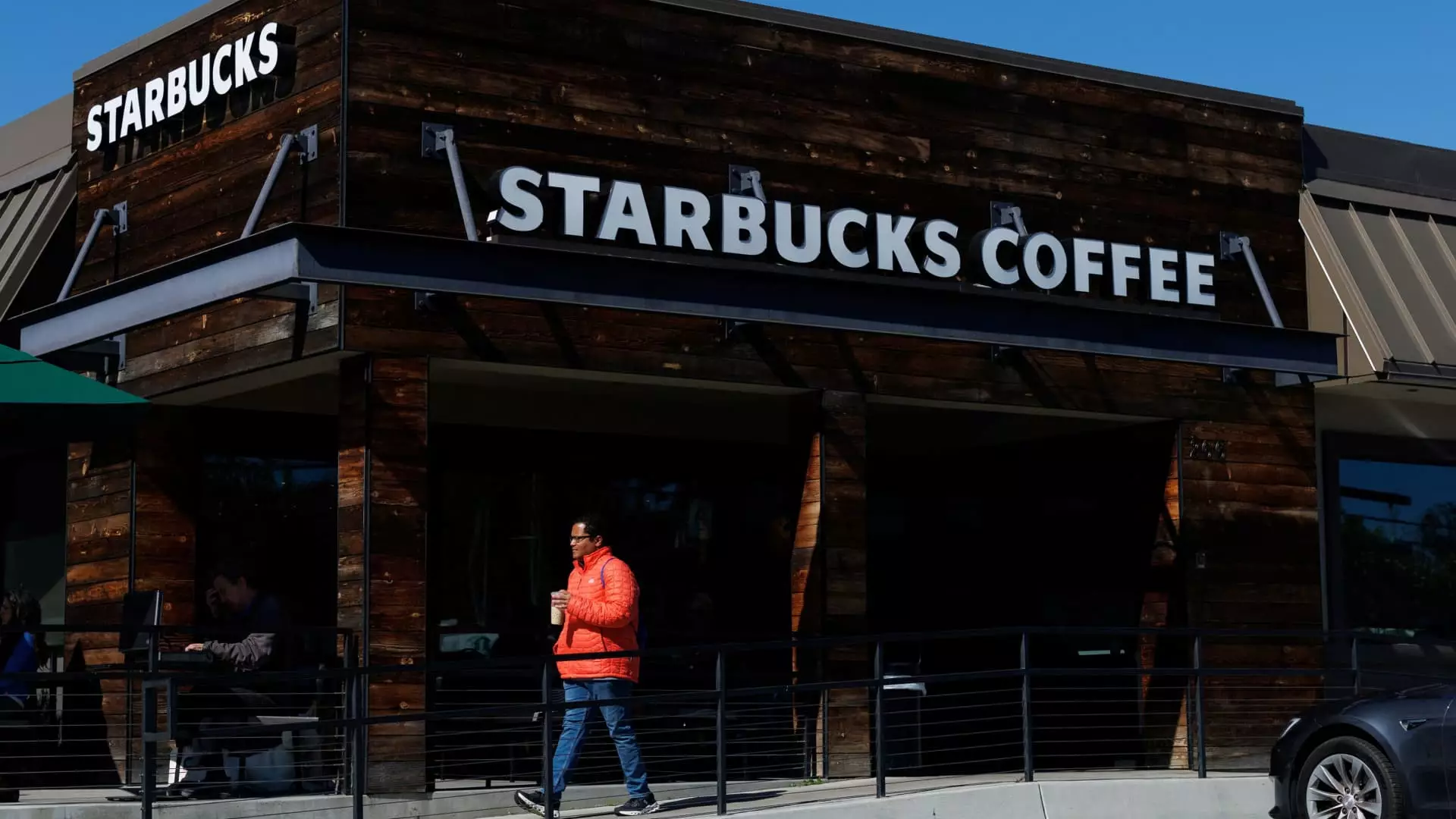The trepidation surrounding the stock market’s reaction to President Donald Trump’s recent tariff announcements has sent ripples through various sectors. As investors cast wary eyes on the future, restaurant stocks emerged as a primary victim of the fears surrounding potential economic downturns. The turbulence this week has been marked not just by a drop in share prices but by the underlying anxiety that threatens an industry already grappling with shifting consumer behaviors. The nuanced analysis reveals that while tariffs may not directly cripple individual restaurant chains, the accompanying inflation could become a formidable barrier to consumer spending.
UBS analyst Dennis Geiger aptly pointed out that the immediate cost implications on restaurants are relatively manageable. However, the specter of consumer spending coming under strain poses a more profound concern, potentially stalling the industry’s recovery momentum. The interdependence of tariffs, inflation, and consumer confidence underscores a complex economic environment that restaurant executives must navigate. As the day’s trading unfolded, it became increasingly clear that the tremors of government policy are reverberating throughout the restaurant landscape.
Starbucks: A Giant Wobbles
Among the most telling cases in this market decline is Starbucks, whose shares plummeted more than 3% after a downgrade from Baird. This signals not just financial challenges but a deeper sentiment shift amongst investors. The coffee chain, which has struggled to reignite growth in its domestic market, faces uphill battles as it attempts to mitigate the impact of rising coffee bean costs precipitated by tariffs on key exporters. Analyst Sara Senatore succinctly captured the underlying fear: the combined threats of rising prices, political boycotts, and recession risks may soon eclipse any positives associated with Starbucks’ previous successes. Given that coffee is primarily sourced from politically volatile regions, the added layer of international tensions could further jeopardize its market stability.
This predicament illustrates that even giants like Starbucks are not immune to market uncertainties. Their vulnerability reflects a broader reality for the entire restaurant sector, which could be forced to grapple with a dual crisis of supply challenges and falling demand as consumer confidence ebbs.
Casual Dining Chains and Fast-Casual Companions Feel the Heat
The decline in share prices was not limited to Starbucks; casual dining chains caught the brunt of market pressures as well. Dine Brands, encompassing beloved chains such as Applebee’s and IHOP, saw its stock drop nearly 3%. As economic sentiment sours, consumers may pivot towards more frugal dining options, further compounding the challenges for these full-service restaurants. Similarly, Darden Restaurants and Texas Roadhouse witnessed worrisome declines, akin to the heavy toll that high tariffs impose on their operational models.
Fast-casual restaurants, once buoyed by a trend towards healthier and more experiential dining, are not exempt from the turbulence either. Despite previously enjoying consumer loyalty, Chipotle, Sweetgreen, and Wingstop are all feeling the pressure. Their slipping stock values suggest that as economic uncertainty mounts, even the most popular fast-casual establishments can no longer take their foothold for granted.
The Fast-Food Resilience: A Complicated Picture
Interestingly, fast-food chains have typically demonstrated resilience in the face of recessionary pressures, often becoming a refuge for consumers seeking affordable meal options. Yet, last year’s wave of decreasing consumer spending, particularly among low-income earners, suggests that this trend may be shifting. Iconic brands like McDonald’s and Taco Bell are seeing unexpected declines as their regular clientele reevaluate their dining habits, shifting the long-standing paradigm that fast-food is recession-proof.
This evolution suggests a crisis of confidence, as even the most enduring fast-food brands are not simply shielded from broader economic turmoil. The class-based shift in consumer behavior highlights a structural challenge within the market; it is no longer sufficient to rely on the inherent value proposition of fast-food chains alone.
While a few bright spots remain — Dutch Bros. and Cava demonstrated upward movement amidst the chaos — these exceptions may only serve to underscore the overall vulnerability of the restaurant sector. As the pall of recession settles into the market, it generates a clarion call for restaurants to innovate and adapt to an unpredictable landscape. It is a stark reminder that complacency is not an option in an age where economic volatility has become the new normal.


Leave a Reply